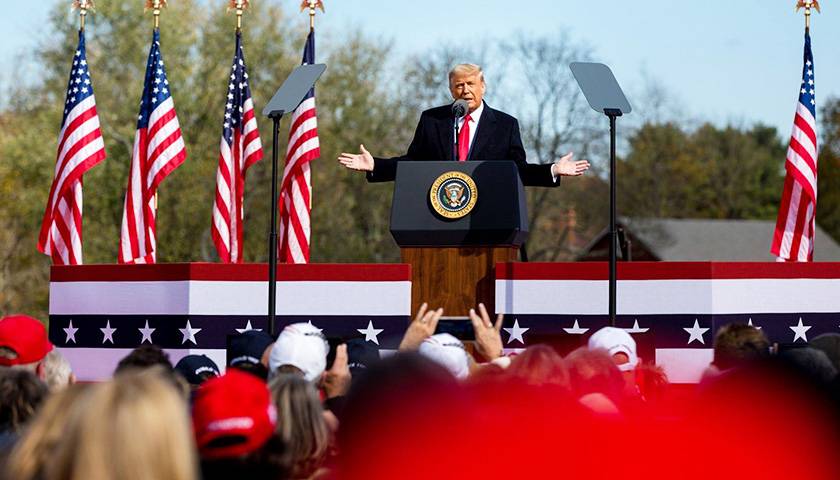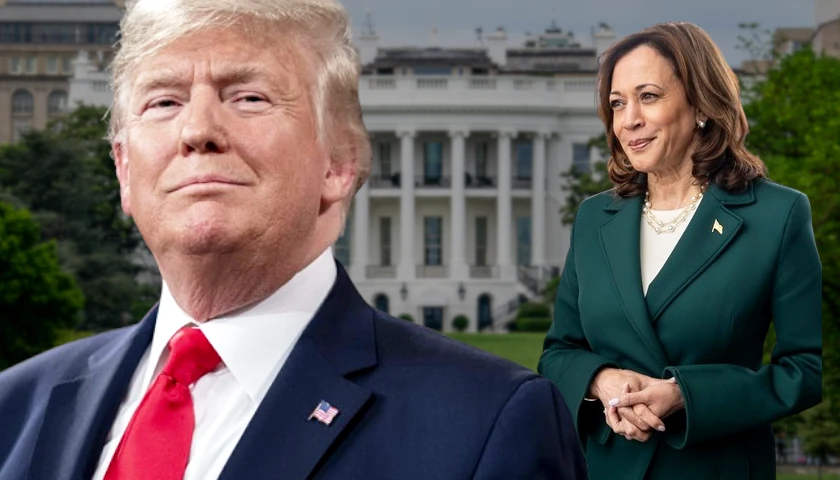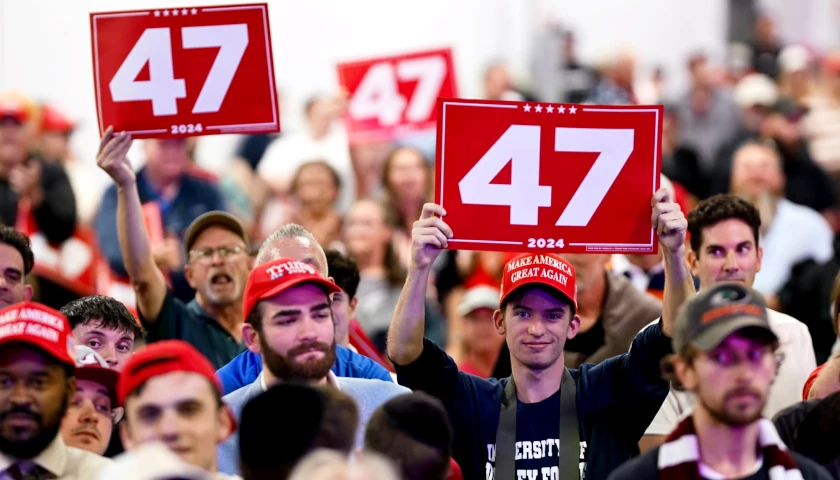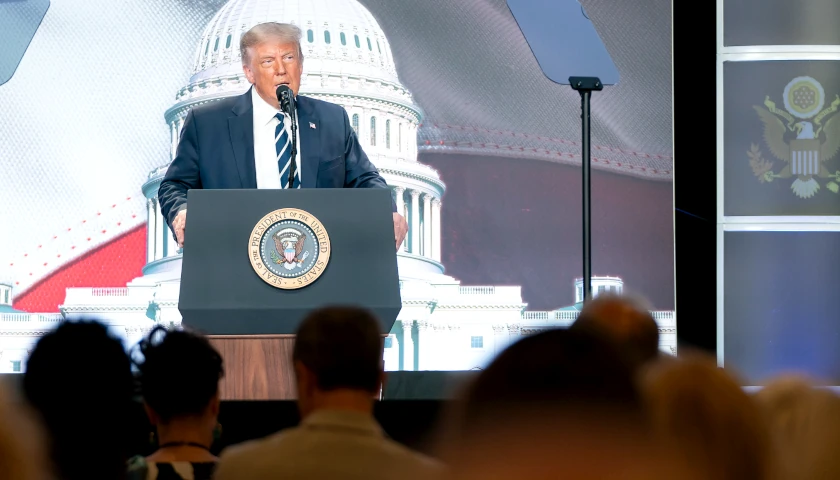by Christopher Roach
The Republican primary is already in full swing. While a few second-tier candidates have joined the fray, including neoconservative Nikki Haley, Senator Tim Scott (R-S.C.), and old school evangelical and former Vice President Mike Pence, the chief contest is between former President Donald Trump and Florida Governor Ron DeSantis.
Things are already heated. Some former Trump supporters now support DeSantis. Indeed, they have completely turned against Trump. The firehose of criticism reminds one of the refrains of a jilted lover.
Perhaps these former enthusiasts expected too much from Trump and from politics in general. On the other hand, it’s not like his high self-regard or lack of discipline was some big secret that should have come as a surprise to them.
Even I, as a Trump supporter, had my share of criticisms of him during his presidency, since I judged him by his fidelity to his 2016 campaign promises. But one has to wonder, with the volume and intensity of his erstwhile supporters’ attacks, how much money is sloshing around turning pundits into hired guns for Team DeSantis.
I believe I have a more balanced view. I support Trump, but I would vote for DeSantis if he were the nominee. Living in Florida, I have voted for and donated to both candidates at different times, and I think both have many relevant skills and virtues politically speaking.
I am also realistic. Since so many of the problems from the 2020 election have not been resolved, and with demographics approaching the point of no return, odds are that any nominee will ultimately lose, further radicalizing the Republican electorate. But for now, having not made a collective decision to boycott elections or to resort to extraordinary measures, it seems we have to pick a horse.
Better Than It Used to Be
In some ways this contest is an embarrassment of riches. It is not a lineup of corporate hacks as in 2016, and there is no “inevitability” for a pseudo-maverick like John McCain, as in 2008.
Neither Trump nor DeSantis is more “conservative” than their predecessors, in the sense of fidelity to “capital gains tax cuts” and “increasing defense spending,” which made up Conservatism, Inc.’s concerns of yesteryear. But both men’s stated views and priorities are closer to those of the voters, and both have remained steadfast in the face of sustained criticism.
The vague, pro-business policies of yesterday’s Republican Party have been replaced by an aggressive, populist energy that is directed towards a multifront war against the administrative state, big corporations, the media, and higher education. Both Trump and DeSantis are harnessing the anger, frustration, and desire for revenge among the aggrieved middle classes and impoverished working class, who do not benefit from the current system, broadly understood.
But each candidate has a different emphasis.
DeSantis’ Appeal
DeSantis is, at best, Trump-lite. His chief appeal is that he has Trump-style policies with greater discipline in execution.
He differs in important ways, though. He is more into old school culture wars, such as his war on the au courant transgender ideology or his recent signing of a six-week abortion ban, than he is in fighting for a border wall or tariffs. While he is willing to take on big corporations and other sacred cows, his opposition to corporations like Disney relates more to their embrace of leftist ideologies. He rarely talks about how big businesses have hurt workers and the country by sending so much of our manufacturing capacity to China. In other words, he does not embrace the economic leg of Trump’s nationalist politics.
Similarly, on foreign policy, Trump has always been a skeptical, foreign policy minimalist. He fought to end the deployments in Syria and Afghanistan, and he endured a lot of heat (and treachery) for it. Is DeSantis willing to go against foreign policy sacred cows?
His recent and vague remarks on Ukraine echo the average Republican’s criticism of the Afghanistan withdrawal, which focused on details of execution, without recognizing the strategic failure of our 20-year long nation-building campaign. While I admit the Republican primary electorate is divided on this issue, a majority of the country is sick of endless and pointless wars, including the bloodbath we are prolonging in Ukraine.
DeSantis’ chief source of national fame has been his stalwart protection of personal freedom, as well as the service-oriented economy of Florida, during the nation’s COVID hysteria. He deserves a lot of credit for this. But he and his supporters have been relitigating the COVID wars, cynically blaming Trump alone for lockdowns. This criticism ignores the near universality of support for the initial lockdowns and that Trump was starting to move away from significant restrictions soon after he was talked into them, around the same time Georgia and Florida did in May of 2020.
Trump surely deserves criticism for tolerating Deborah Birx and Anthony Fauci as long as he did and for pushing vaccines, when anyone could see the pharmaceutical companies had every incentive to exaggerate benefits and suppress information about side effects. But how much does any of this resonate today, when hardly anyone wears masks?
For the nation and Florida, there were many mistakes and much confusion during COVID, but you can’t completely blame Trump or anyone for initially following advice from experts who say millions will die in the absence of their preferred policy.
Trump Still Has Many Advantages
Trump differs from DeSantis in three important ways.
First, he was already president, and he has already won on the national stage. Most of his supporters think he won twice, with his second victory stolen by a variety of known and unknown shenanigans arising from mail-in voting, old-fashioned ballot box stuffing, relentless propaganda, and obstacles to fair elections in key states like Michigan, Pennsylvania, Georgia, and Arizona.
DeSantis thinks he should be president, and that his reelection victory in 2022 was noteworthy. But what is he going to say when he is asked, “Did Trump lose fair and square in 2020 or was it stolen?” Even with his other merits, it’s hard to see how DeSantis can defeat Trump in a primary without alienating the majority of Republican primary voters who feel, with much justification, that Trump was robbed of a victory in 2020.
Second, Trump has better retail political skills than DeSantis. This was evident in the recent CNN town hall, for which the CNN leadership is still flagellating itself. Trump was calm, persistent, witty, and he embarrassed the juvenile host by reading verbatim his conciliatory statements from January 6.
This gap in charisma is evident in every possible venue. DeSantis lacks Trump’s humor, agility, TV experience, and easygoing way with ordinary people. Perhaps it’s not fair, but in the age of television, short attention spans, and universal suffrage, these things matter.
DeSantis is often bogged down in minutia, using phrases like DEI and ESG that may circulate around policy wonk circles but are not necessarily known to the working-class voters who make up a good swath of the electorate.
In short, Trump is warm and fun, while DeSantis is nerdy and cold.
Third, Trump is very rich. He asks for money, but he does not need anyone’s money. This affords him a great deal more independence than DeSantis or really almost any other candidate. Money alone will not win races, of course. Just ask Mike Bloomberg. But dependence on donors means the donors will ultimately call the shots. If the donors want the war to go on in Ukraine, then war goes on in Ukraine. If donors want a tax cut or a change in regulations to help them make a bundle of money, then that’s what the candidate will do.
This is one reason there is such cynicism about politics and also why so many politicians appear so fake and controlled. Most of them are fake and controlled, consisting of pure ambition, cajoled this way and that by donor money and the prospect of such money being withheld.
By way of example, DeSantis retreated from his (correct) instinct to scale back American support for Ukraine—describing it as a territorial dispute—after withering criticism from arch-neocon Nikki Haley. Trump may change his views and his tone, but no one thinks he is owned by any particular group or donor. DeSantis literally cannot afford to do that.
So I’m still with Trump. My money is on a resounding Trump victory in the primary, even with whatever deep state tricks are on the horizon, followed by a Biden installation after de minimis campaigning in the general election. Even with that outcome, Trump will be entertaining, and his nomination functions as a big fat middle finger to this corrupt and hostile system.
– – –
Christopher Roach is an adjunct fellow of the Center for American Greatness and an attorney in private practice based in Florida. He is a double graduate of the University of Chicago and has previously been published by The Federalist, Takimag, Chronicles, the Washington Legal Foundation, the Marine Corps Gazette, and the Orlando Sentinel. The views presented are solely his own.
Photo “Donald Trump” by Donald J. Trump.




